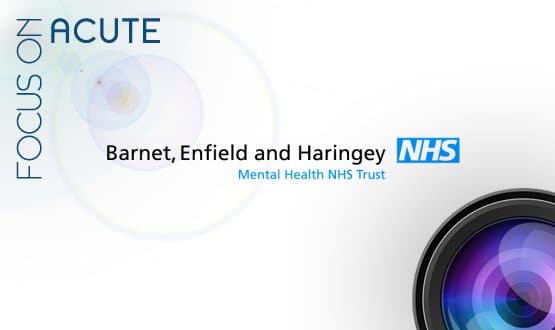EHI focus on: Barnet, Enfield and Haringey
- 6 February 2012

The way Barnet Enfield and Haringey Mental Health NHS Trust’s head of IM&T talks about delivering information technology you’d think she had struck gold.
“I have a wealth of information at my finger-tips,” says Louise Felstead, while waxing lyrical about the ‘revolution’ brought about by outsourcing its IT services.
The possibility of outsourcing to big name, international companies has often been viewed as a potential danger to NHS IT teams. But it may be gaining momentum once more as trusts consider how to deliver state of the art technology for less.
Barnet Enfield and Haringey took the decision to hand over the reins of its IT services to HP Enterprise Services in May last year – shortly after Felstead joined the North London trust from the private sector.
Almost seven months on, and two weeks shy of the full managed service go-live, it is clear the trust is not-so-quietly pleased with its decision, which was reached after an options appraisal conducted by Channel 3 Consulting, and acted on using the government’s Desktop21 procurement framework.
Both Felstead and the medical director Pete Sudbury feel the question that other trusts should be asking is why a trust wouldn’t outsource its IT services, at a time when they are being urged to implement more – and more advanced – technology without increasing their expenditure.
“Gone are the days when you build a whole permanent IT team to support a massive change,” Felstead says.
“I know that there are still some people out there who believe in that way of working, but when I look out there at some of the more progressive trusts, I actually think ‘I am going to learn from them to make sure that this process works’.”
In fact, in Sudbury’s view, trusts would be “crazy” to attempt to implement significant changes while relying solely on an internal IT team.
“How could you not outsource IT if you wanted it to be really good?” he asks. “We are a £190m NHS organisation and we haven’t got the pull to get really great IT people. I think the time for sort of ‘talented amateurs’ is gone.”
Faster, better response
Bartnet Enfield and Haringey now has that “wealth of information” coming from an “international pool of experts.”
“That level of input is amazing,” Felstead says. “I was on the phone at 12 at night once, when we had a problem, and it was resolved within four hours. I couldn’t have better those skills had I had a permanent team.”
One big concern with outsourcing is that in-house staff will lose their jobs. However, at Barnet Enfield and Haringey the internal team has grown.
Felstead now has a maximum of ten staff to manage the outsourced contracts. When a new deployment is underway, external staff will be drafted in to take care of the deployment. When it is completed, they will leave.
She sees this situation beneficial for two reasons. First, she says, she is never stuck with people who do not have the relevant experience for the project on hand
Secondly, it is cost effective. “It’s about what you can get for your money. You’re dealing with people who already have the networks in place and you can plug into their data centres. [HP] already has relationships set up and can get the kit for cheap.”
The company took control of the trust’s infrastructure in June last year. Almost immediately, the trust also began to take advantage new service desk arrangements.
Felstead says the new service is 90-100% better than the one that was being provided by the local health informatics service. “We used to have to spend 20 minutes waiting for a call to be answered, now we wait 26 seconds,” she says.
The trust is currently gearing up for the launch of the fully managed ‘Desktop 21’ programme; which is the key component HP was contracted to deliver. It includes giving clinicians access to one desktop build in from their lap tops and unified communications integrated with Voice over IP.
But the trust really wants to get its staff mobile. “We’re moving patient care out into the community,” Felstead says.
“That means we will meet people in their homes – and in cafes, if necessary – so that care is focussed on the patient in the community. We’re no longer thinking about patients in hospital beds, but instead out there where they need to be cared for.”
HP’s unified telecoms infrastructure is going to ‘open the door’ for the trust to introduce such technology, she says. Since the trust recently took over its local community services, such mobile working is going to be even more important.
Blame it on RiO
While everything is going swimmingly on the infrastructure and support side of the trust’s IT, both Felstead and Sudbury express disappointment with the RiO mental health system provided with under the National Programme for IT in the NHS.
The CSE Healthcare system, delivered by local service provider BT, leaves a lot to be desired, in their opinion. In addition, it ‘refuses to speak to’ the RiO community system the newly acquired community service provider unit is operating – and the trust can’t introduce a mobile version of the system.
“The supplier has a mobile version but we can’t bring that in because BT is so far behind with the NPfIT programme they can’t implement that,” Felsted says.
Even so, the trust is committed to continuing on with the contract and upgrading RiO as new versions become available; albeit with a reassessment of the EPR systems available pencilled in for some time in the future.




